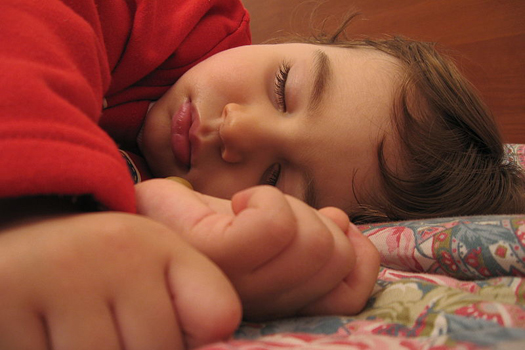

While you’re asleep, your brain is busy updating and rebooting. It takes the information you’ve gathered throughout the day subconsciously and processes it into explicit, conscious knowledge. Children usually perform worse than adults at cognitive tasks, but a new study shows that they are significantly better at this process of implicit to explicit conversion than adults.
As a child, you sleep more deeply than an adult, and experience three times more slow-wave sleep and higher electrical activity in the brain during that sleep. This may help turn the large amount of information you accumulate during the day into knowledge you can recall intentionally.
The study, published in Nature Neuroscience this week, looked at 35 children between 8 and 11 years old, as well as 37 adults between 18 and 35. They were each asked to quickly press a sequence of buttons after they lit up. Half of them performed the activity before sleep, and half after. They were then asked to recall the sequence of the eight lights 10 to 12 hours later.
After sleeping, almost all of the children turned the implicit knowledge into explicitly and could remember the sequence they had pressed perfectly, while adults experienced smaller gains. Both groups remembered the sequence better after sleep than those who were asked to recall it right after their training.
This result seems to be unique to the transfer of implicit to explicit memories. Other studies have found that children benefit from sleep at or below the level of adults when it comes to other memory tasks.
